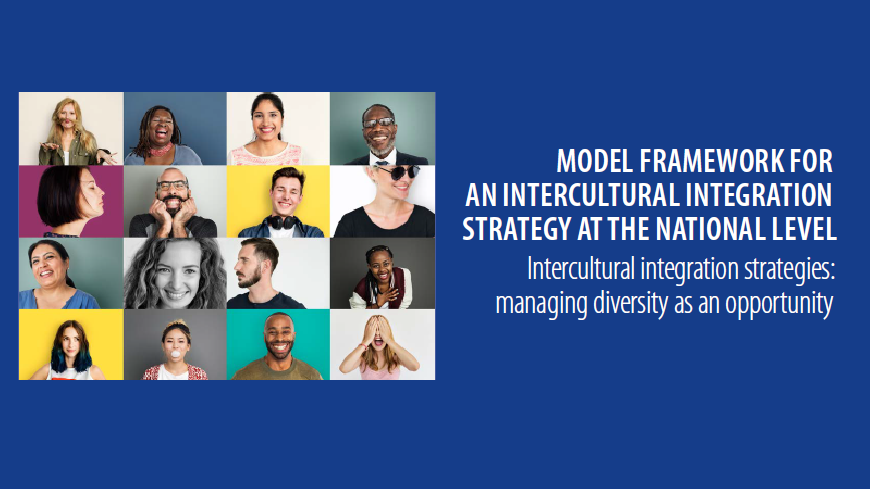The Model Framework for an intercultural integration strategy at the national level, adopted in June 2021 by the Committee on Anti-Discrimination, Diversity, and Inclusion (CDADI), is now available in English and French in fully edited form.
During its third plenary meeting last June, the CDADI adopted the Model Framework for an intercultural integration strategy at the national level, the first international guidance to serve as a basis for national intercultural integration strategies grounded on human rights standards.
Developed by the Working Group on Intercultural Integration (GT-ADI-INT), the purpose of the Model Framework is to guide national policy practitioners in their efforts to design integration policies which help build inclusive and cohesive societies.
The document is a source of inspiration and ideas underpinned by a wealth of experience, evidence and good practices gathered across all levels of governance thanks to the multilevel composition of the GT-ADI-INT, the first intergovernmental working group bringing together national and local authorities.
The main sources on which the Model framework is based on are:
- Council of Europe standards and insights from monitoring bodies, including the European Convention on Human Rights, the Convention on the participation of foreigners in public live at the local level, many Recommendations and Guidelines by the Council of Europe Committee of Ministers and the General Policy Recommendations of the ECRI. The document is also inspired by other authoritative texts such as “Time for Europe to get migrant integration right”, issue paper published by the Council of Europe Commissioner for Human Rights;
- Member states experience and practice, gathered inter alia but not exclusively, thanks to the review of the implementation of Recommendation CM/Rec(2015)1 on intercultural integration (see the review report adopted by the CDADI in February 2021);
- The outcomes of the Intercultural Cities Policy Labs and good practices. Carried out in the context of the Intercultural Cities programme between 2017 and 2019, the Policy Labs were spaces for discussion between local, regional and national officials on common goals, understanding and vision for human-rights-based integration policies which foster community cohesion and positive intercultural interaction. The knowledge gathered at the Policy Labs has been completed with the extensive compilation of good practices collected every year as part of the implementation of the Intercultural Cities programme.
The Model Framework also shows how all policy areas can contribute to achieve successful integration, benefit from the diversity advantage, and promote more inclusive societies, especially if these are coordinated through a multilevel approach, involving the cooperation across all levels of governments. Finally, a detailed matrix puts forwards a large number of examples how the principles of intercultural integration can be translated into policies.




